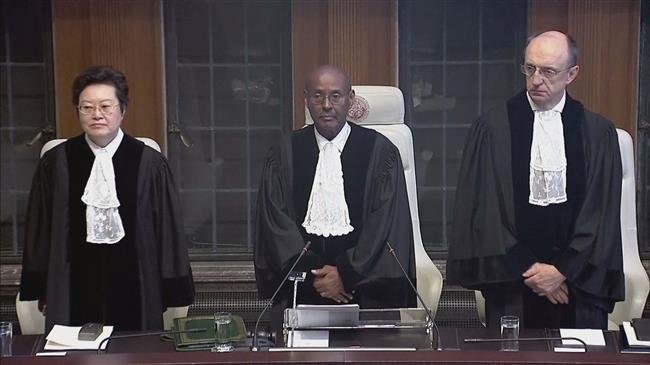International Court of Justice orders US to ease Iran sanctions
October 4, 2018 | Expert Insights

The International Court of Justice (ICJ) has ordered the US to ease sanctions that it re-imposed on Iran after abandoning a nuclear deal in May.
Background
Iran is no stranger to intense economic pressure. It has weathered US sanctions for nearly four decades. With the Iranian Revolution in 1979, the United States imposed an asset freeze and trade embargo against Iran. While those sanctions were later lifted, the United States foisted new blockage on Iran in 1987. These sanctions were expanded in 1995 to include firms that were dealing with the Iranian government. With the passing of the 1969 resolution in 2006, new sanctions were levied after Iran refused to suspend its uranium enrichment program.
The US sanctions targeted investments in oil, gas and petrochemicals. Over the years, sanctions have taken a serious toll on Iran’s economy and people. Since 1979, the United States has utilized these sanctions to influence Iran’s policies, including the uranium enrichment program, which the western government fears is intended to develop nuclear weapons.
However, Iran’s counterargument is that the nuclear program is primarily meant for civilian purposes, including the generation of electricity and for medical purposes. The ruling by the international court in The Hague is related to a complaint that Iran filed in July, arguing that the new sanctions violated the Treaty of Amity, Economic Relations and Consular Rights, which was signed between Iran and the US, in 1955.
Read more of our extensive analysis of the ICJ and Iran here and here
Analysis
In a ruling issued on October 3, the International Court of Justice sided with Iran and compelled the U.S. to scale back its sanctions on the Islamic Republic in a number of key areas including medicines, food and aircraft spare parts.
The sanctions imposed on Iran this year were followed by the decision of President Donald Trump on May 8th to withdraw from the nuclear deal negotiated by Iran, the United States and five other nations, also known as the Joint Comprehensive Plan of Action (JCPOA). The sanctions are designed to be imposed in two tranches, with the first coming in August and the second due to follow in early November 2018.
The interim ruling was handed down since judges recognized the urgency of Iran’s plea at this stage of the proceedings. The Iranian Foreign Ministers, Mohammad Javed Zarif, called the court ruling “another failure for sanctions addicted by the US government and victory for rule of law.” He said in his statement that the ruling was a clear sign that “Iran is in the right.”
While the U.S. might have justified their actions in order to protect their security interests and restrict Iranian activities with regard to “fissionable materials”, the ICJ also said Iran has a right to seek protection from the court to ensure freedom of trade and commerce, particularly in relation to humanitarian goods and services and those linked to civil aviation.
In its ruling, the court said: “the measures adopted by the United States have the potential to endanger civil aviation safety in Iran and the lives of its users to the extent that they prevent Iranian airlines from acquiring spare parts and other necessary equipment.” In addition, it said “restrictions on the importation and purchase of goods required for humanitarian needs, such as foodstuffs and medicines, including life-saving medicines, treatment for chronic disease or preventive care, and medical equipment, may have a serious detrimental impact on the health and lives of individuals on the territory of Iran.”
The US sanctions have already weakened the Iranian economy and sent the riyal spiralling to new lows against the dollar. The second round, of even tougher sanctions, is due to go into force in November, targeting countries which buy Iranian oil. Iran has demanded that European countries find a way to offset the economic damage caused by US sanctions.
Assessment
Our assessment is that, at an economic level, these trade sanctions was the basis for higher inflations (8.3%) and lower growth (4.3%). For Iranian companies, there was an increase in their operating costs, particularly those that relied on the foreign market for their inputs and exports. We believe that the sanctions have led to a weakening of the private sector, small and medium enterprises who found it arduous to bear the higher costs of operations.
We understand that European companies which ceased trading with Iran would reconsider their position, mainly those who are involved with humanitarian commodities. However, while the court’s ruling is binding, it still remains unclear whether the US will adhere to the decision. As a result, we feel Tehran may still find it difficult at this juncture to persuade potential trading partners to cooperate with it.








Comments